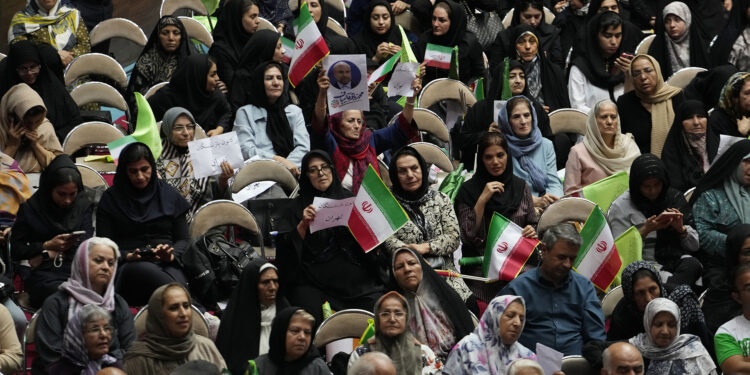The electoral campaign is intensifying, days before the presidential elections in Iran scheduled for the 28th of this month, between the six competing candidates who differ on the strategy to revive the economy affected by severe Western sanctions.
The final turn of the campaign began with the first debate, among 5 televised debates, between the six candidates on Monday evening.
Inflation
This comes after a calm period that marred the hastily organized election campaign to choose a successor to President Ibrahim Raisi, who died in a helicopter crash last May.
Over a period of 4 hours, the candidates presented in detail their solutions to economic problems, which are the main concern of voters, many of whom face difficulties to make ends meet.
The approximately 85 million Iranians face high inflation of up to 40%, high unemployment rates and a record decline in the value of the Iranian rial against the dollar.
Despite this, the government praises the good economic growth rate it achieved at 5.7% during the 12 months ending last March, and expects to record 8% this year thanks to the increase in fuel exports.
The candidate, Speaker of the Shura Council, Muhammad Baqir Qalibaf, said during the debate, “I promise workers and retirees that we will strengthen the economy” in order to “combat inflation… and preserve their purchasing power.”
In the absence of opinion polls, experts consider this governor one of the three most likely candidates in the elections, along with Saeed Jalili, the former conservative negotiator in the nuclear file, and Masoud Pezeshkian, the representative for Tabriz (northwest) and the former Minister of Health.
Lifting sanctions
Masoud Pezeshkian received the support of prominent moderate and reformist figures, including former President Mohammad Khatami (1997-2005) and former Foreign Minister Javad Zarif, the main architect of the 2015 nuclear agreement with major international powers.
During the televised debate, 3 of the six candidates, including Ghalibaf and Pezeshkian, called for prioritizing the lifting of sanctions that have affected the economy since the United States’ unilateral withdrawal from the nuclear agreement in 2018.
Washington, in particular, imposes a ban on petroleum products and the aviation and mining sectors, and also prevents the use of the dollar in commercial transactions with Iran.
The reformist candidate believed that “it is impossible to achieve the 8% growth goal” without re-establishing normal economic relations “with other countries,” including Western countries whose companies have completely abandoned Iran in recent years.
Another candidate, Governor Amir Hossein Ghazizadeh Hashemi, estimated the size of the investments required at “$250 billion,” especially to modernize the main sectors of oil and gas production.
Crisis and visions
The only cleric running for the presidential elections, Mostafa Pourmohammadi, said that because of the sanctions, “financial transfers have become impossible, and our economy has stopped.”
But for his competitor, Ali Reza Zakani, the mayor of Tehran who is affiliated with the ultra-conservative movement, “the problems of the Iranian economy are not related to the harsh American sanctions,” and he proposed “strengthening the country’s independence,” especially by “getting rid of the dollar from the economy.”
During the three years of his presidency, Ibrahim Raisi followed a policy of openness “to the East,” especially by strengthening economic relations with China and Russia, while restoring relations with Arab countries, led by Saudi Arabia.
At the same time, relations with Western countries have continued to deteriorate, especially since the start of the Gaza war last October.



